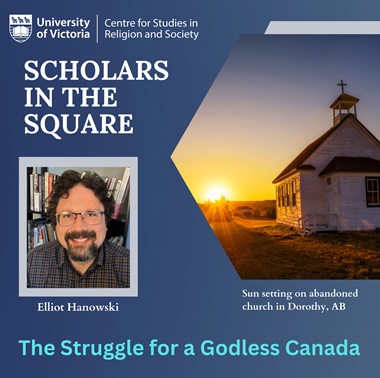 Sometimes it seems as though the Christian community is under attack – some of my social media links insist on that point every day. Or at least that we’re being sidelined or dismissed. I’ve made that point myself, from time to time.
Sometimes it seems as though the Christian community is under attack – some of my social media links insist on that point every day. Or at least that we’re being sidelined or dismissed. I’ve made that point myself, from time to time.
Just this week I’ve noticed a few sobering initiatives and stories. For example:
- The BC Humanist Association is “set to sue Vancouver over inaugural prayer.” Another of their recent headlines read ‘Access to MAID should not cater to faith-based interests’ and they are urging supporters to ‘Repeal the religious hate speech defence.’
- The Centre for Studies in Religion and Society at the University of Victoria is hosting these two talks as part of its 2024 Summer Lecture Series: ‘Virtuous Atheist’: Unbelief in Postwar Canada and The Struggle for a Godless Canada. (To be fair, the CSRS has hosted talks by Christians and about Christianity as well.)
- Fire destroyed a 130 year old church in Nova Scotia – and the CBC News story didn’t mention how many churches have been vandalized recently. True North reported in February that “100 Christian churches in Canada have been vandalized, burned down or desecrated” since the summer of 2021.
Every day I read various responses from the Christian community to such stories – from “Don’t worry about it, God is in control” to “They’re right, the church is dying” to “Man the barricades!”
But every week I am also reminded that many Christians continue to engage positively with the culture around them. And are still often appreciated for that involvement.
Creative engagement
Just in this week’s Church for Vancouver articles, for example:
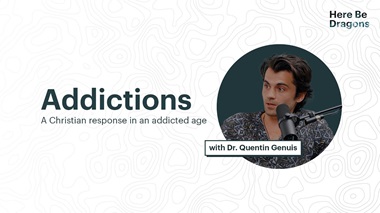 Canuck Clay is creating community around our home town team.
Canuck Clay is creating community around our home town team.- Dr. Quentin Genuis is working at St. Paul’s Hospital and engaging with issues of addictions and bioethics.
- Sanctuary Mental Health Ministries urges believers to consult both medical and scriptural sources when dealing with mental illness / demonic activity.
- Susie Colby introduces The Bell, which involves Christian writers engaging with the broader community.
- GO Movement encourages us to introduce our friends and family to the Saviour, to take the Great Commission seriously.
If you glance at the Church for Vancouver Events Calendar you will see many more ways in which Christians are engaging with the surrounding community. For example:
-
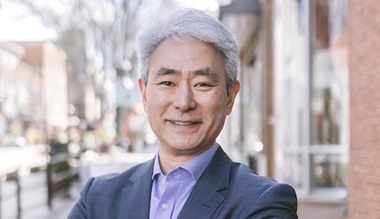
Walter Kim will speak on ‘The Gospel, Discipleship and Cultural Engagement.’
Several churches have been offering free tax clinics over the past couple of months (and a couple still are).
- Stefan Paas, a professor and church planter from the Netherlands, will consider ‘Christian Mission in a Post-Christian Society.’
- A Multicultural Temple Tour will introduce Christians to practitioners of other faiths.
- March for Life Victoria will gather a wide range of Christians to stand up for unborn children.
- The 57th (!) annual BC Leadership Prayer Breakfast will welcome and celebrate our political leaders.
- A cross-country event will consider how the church can deal better with the disability community.
- Journey Home, a leading network supporting asylum seekers, will strengthen itself for further work.
- The Centre for Christian Engagement will consider Laudato Si’, Pope Francis’ encyclical on care for creation.
- Walter Kim, President of the National Association of Evangelicals in the States, will speak on ‘The Gospel, Discipleship and Cultural Engagement.’
- The ‘Politics in the Pulpit Conference’ aims to “help Christians engage in the political and cultural spheres in effective and godly ways.”
Three valuable books
So, there are many creative efforts going on all the time in the Christian community. There is, of course, room for still greater engagement and creativity in the face of dramatic social change. Three recent books I have come across offer some helpful insights. Following are brief introductions, but I do point to helpful interviews for anyone wanting to follow up.
- Tom Holland: Dominion: How the Christian Revolution Remade the World (Basic Books, 2019)
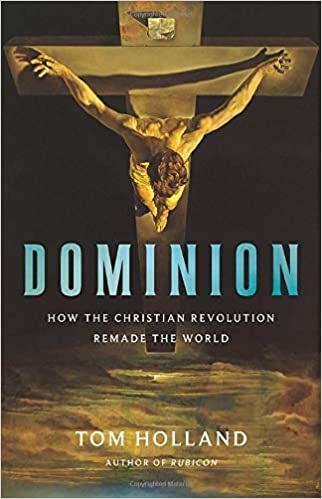 As a child Holland was stirred and moved more by the Greek and Roman worlds than by biblical narratives. Thus his earlier books focused on such themes. But his views changed the more he learned about those cultures.
As a child Holland was stirred and moved more by the Greek and Roman worlds than by biblical narratives. Thus his earlier books focused on such themes. But his views changed the more he learned about those cultures.
As he states in the Preface to Dominion:
The more years I spent immersed in the study of classical antiquity, the more alien I increasingly found it. . . . It was not just the extremes of callousness that unsettled me, but the complete lack of any sense that the poor or the weak might have the slightest intrinsic value.
Why did I find this disturbing? Because in my morals and ethics, I was not a Spartan or a Roman at all. That my belief in God had faded over the course of my teenage years did not mean that I had ceased to be Christian.
For a millennium and more, the civilization into which I had been born was Christendom. . . . So profound has been the impact of Christianity on the development of Western civilization that it has come to be hidden from view.
Going back to ancient Greece and Jerusalem before Jesus, and moving chapter by chapter through to the present, Holland adds:
This book explores what it was that made Christianity so subversive and disruptive; how completely it came to saturate the mindset of Latin Christendom; and why, in a West that is often doubtful of religion’s claims, so many of its instincts remain – for good or ill – thoroughly Christian.
It is – to coin a phrase – the greatest story ever told.
Iwan Russell-Jones interviewed Tom Holland on behalf of Regent College three years ago, focusing particularly on Dominion.
- Bruce Clemenger: The New Orthodoxy: Canada’s Emerging Civil Religion (Castle Quay Books, 2022)
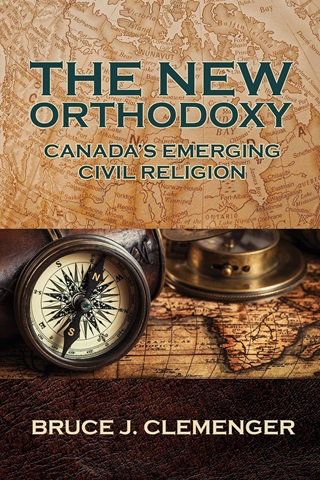 Bruce Clemenger knows both the church and society well. He was President of the Evangelical Fellowship of Canada for more than 30 years and is now the EFC’s Senior Ambassador.
Bruce Clemenger knows both the church and society well. He was President of the Evangelical Fellowship of Canada for more than 30 years and is now the EFC’s Senior Ambassador.
He has supervised more than 60 court interventions, including 30 before the Supreme Court, and has appeared numerous times before Parliamentary committees on a range of issues.
A review of The New Orthodoxy by Michael R. Wagenman on the Christian Courier site offers a useful introduction:
In Part 1, Clemenger begins tracing Canada’s political story by presenting a framework for understanding the theory behind Canada’s politics. Canada is rooted in liberalism, the Enlightenment idea that religiously/ideologically diverse people can form a just society through agreed-upon rights and freedoms.
In Part 2, he evaluates how well Canada is living up to its ideals today.
For Clemenger, the complicating factor is that liberalism has evolved into two different streams (or what Charles Taylor calls different understandings of secularism).
There is the traditional view in which each citizen is equally free to orient their lives in the way they see fit (provided they don’t injure their neighbour). No official religion or established church – not even the state itself – has the authority to tell Canadians what to believe or how to live out those beliefs.
But the emerging view of liberalism, which Clemenger argues is rapidly becoming the “new orthodoxy,” holds to a progressive “secular creed” that must be imposed on society by the state to ensure equity in the midst of diversity. Citizens are permitted to hold their religious beliefs in private but, in the public square, there is only one right way to think and live. He believes that this singular way of seeing things is the heart of Canadian civil religion today.
Bruce Clemenger spoke with Lindsay Callaway and Rick Hiemstra in a Faith Trends Podcast last February.
- Christopher Watkin: Biblical Critical Theory: How the Bible’s Unfolding Story Makes Sense of Modern Life and Culture (Zondervan Academic, 2022)
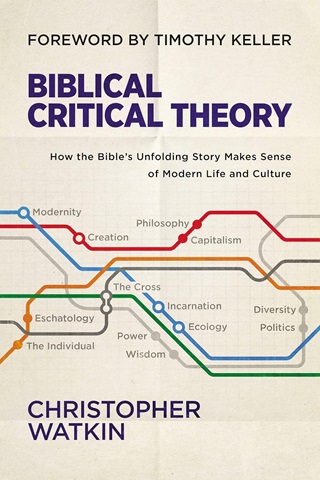 This is an impressive book, if slightly daunting at 672 pages.
This is an impressive book, if slightly daunting at 672 pages.
Christopher Watkin (PhD, University of Cambridge) is senior lecturer in French studies at Monash University in Melbourne, Australia. He has an international reputation in the area of modern and contemporary European thought, atheism and the relationship between the Bible and philosophy.
He offered a fascinating talk earlier this year, facilitated by Gordon Carkner, who runs the Graduate Faculty Christian Forum at UBC, and hosted by Brian Stanley, Professor Emeritus of World Christianity at Edinburgh University.
Writing a review for The Gospel Coalition, Andrew Moody begins this way:
Biblical Critical Theory is a tricky book to categorize: it’s part biblical theology, part worldview survey, part apologetic and part primer on Christian ethics. In the introduction, Christopher Watkin offers the alternative titles of Know What Follows from What You Believe or perhaps The Bible: So What?.
Those titles make it sound very general – like a book about the Bible and all its implications. Actually, it’s even more broad-ranging than that.
Biblical Critical Theory isn’t just a book about what the Bible says and means, it’s also about the alternatives. It’s both an attempt to show off Christianity’s riches and an exposé that demonstrates how Bible-rejecting cultures and ideologies represent “reductive and partial simplifications of a more complex biblical position.”
Watkin takes his cue from Augustine’s City of God as he seeks to “out-narrate” paganism – first laying bare its failures and then setting forth biblically described reality as the truth pagans are really seeking.
Go here for the full YouTube presentation, which will be well worth your time.
